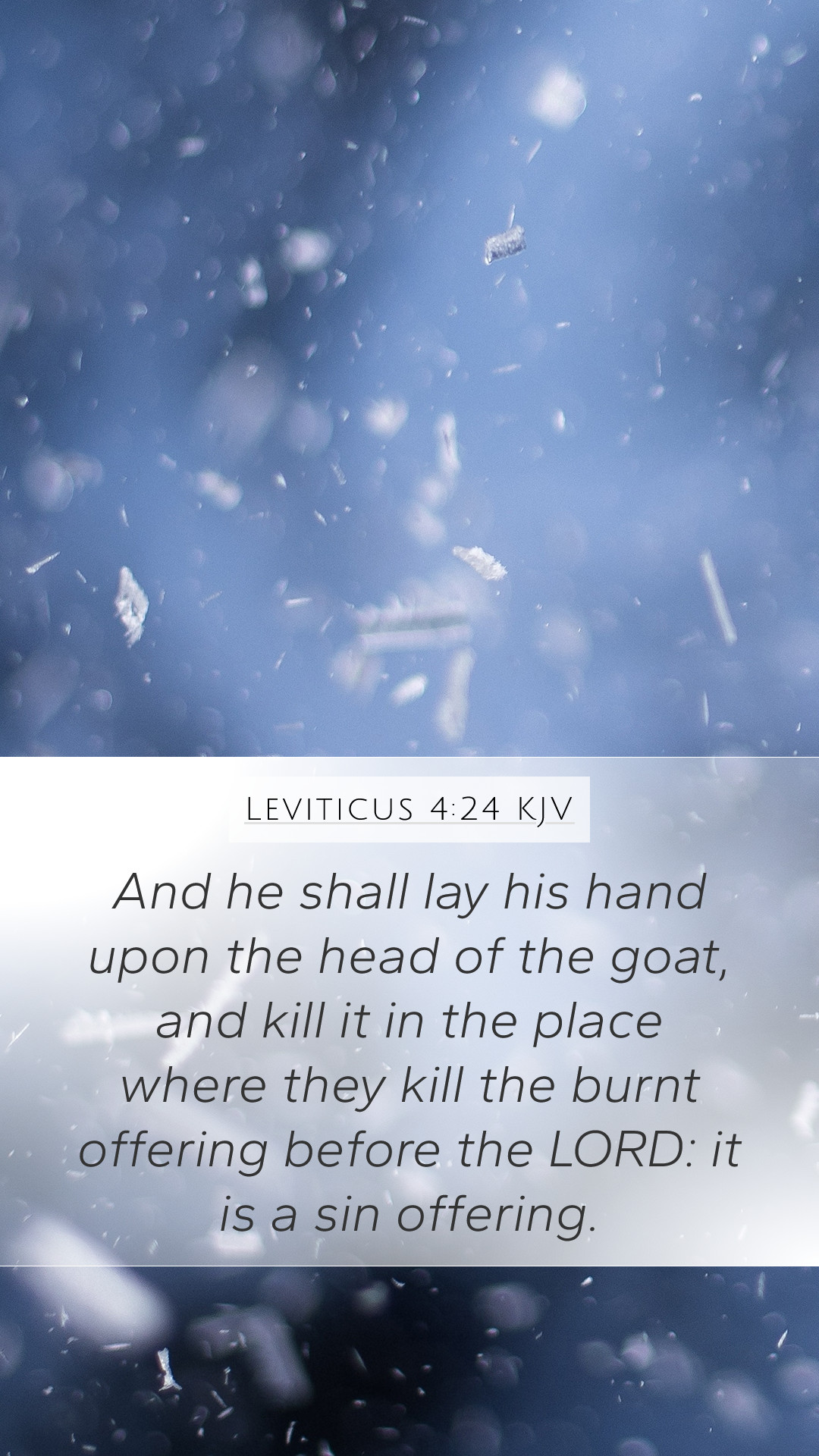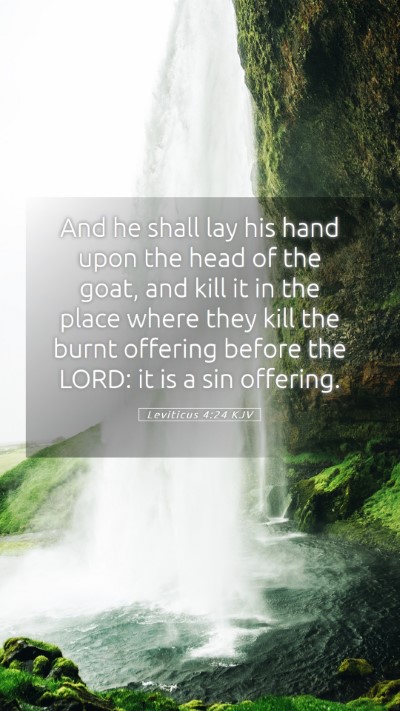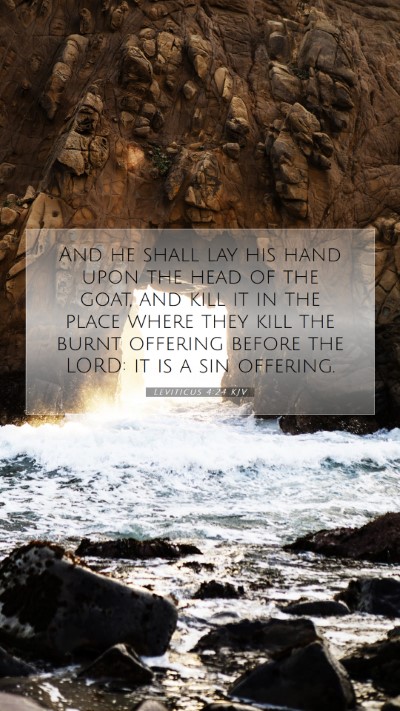Understanding Leviticus 4:24 - Bible Verse Meaning
Leviticus 4:24 states: "And he shall lay his hand upon the head of the goat, and kill it in the place where they kill the burnt offering before the Lord: it is a sin offering."
Bible Verse Commentary
This verse is part of the instructions given regarding sin offerings in the Old Testament, which were crucial for maintaining a right relationship with God. By laying hands upon the animal, the offerer symbolically transferred their guilt and sin onto the goat, which was then sacrificed as a substitution for the person's sin.
Insights from Matthew Henry
Matthew Henry emphasizes the significance of the act of laying on hands. This act signifies the confession of sin and the acknowledgment of the need for atonement. The sacrifice of the goat is a powerful reminder of the seriousness of sin and the need for a substitute to take the punishment that we rightfully deserve.
Insights from Albert Barnes
Albert Barnes points out that this procedure was specific to the ceremonial law given to the Israelites. The atonement for sin was a pivotal aspect of the Jewish faith, illustrating God's justice and mercy. The choice of a goat reflects the understanding of sin and its costs, showing that while the death penalty was the deserved consequence, God provided a means of reconciliation through sacrifice.
Insights from Adam Clarke
Adam Clarke elaborates on the ritual implications of the sacrifice. He notes that the significance of the location where the goat was killed—next to the burnt offering—highlights the unity of the sacrificial system and how different offerings served to fulfill various aspects of the law. Clarke also mentions the restorative nature of these sacrifices, as they provided the people with a clear path to forgiveness and restored fellowship with God.
Overall Interpretation
The act of sacrificing the goat and the laying on of hands presents a profound spiritual truth: that sin incurs a debt which must be paid. The sacrifices were never meant to be mere rituals, but rather representations pointing towards the ultimate sacrifice of Christ. This foreshadowing illustrates God’s plan for redemption and the concept of vicarious atonement, which is pivotal in theology.
Application and Significance
Understanding Leviticus 4:24 has practical applications in our lives today. It teaches us about the seriousness of sin and the importance of repentance. Just as the Israelites had a means to reconcile with God, we have the opportunity to confess our sins and seek forgiveness. This verse invites us to a deeper understanding of God’s grace and the cost of our redemption.
Bible Study Insights
- The act of confession and laying hands reflects the individual’s responsibility for their sins.
- The ritual of sacrifice highlights the seriousness with which God regards sin.
- Christians see parallels between this Old Testament practice and the sacrificial death of Jesus Christ.
- Studying this verse can enhance our appreciation for the New Testament teachings on grace and redemption.
Conclusion
Leviticus 4:24 not only provides insight into the sacrificial system of the Old Testament but also opens up broader themes of redemption and atonement that resonate throughout Scripture. Through careful study, believers and seekers can appreciate the depth of God’s plan for salvation.
Related Bible Cross References
- Hebrews 9:22 - "And almost all things are by the law purged with blood; and without shedding of blood is no remission."
- 1 Peter 2:24 - "Who his own self bare our sins in his own body on the tree, that we, being dead to sins, should live unto righteousness: by whose stripes ye were healed."
- Isaiah 53:6 - "All we like sheep have gone astray; we have turned every one to his own way; and the Lord hath laid on him the iniquity of us all."


